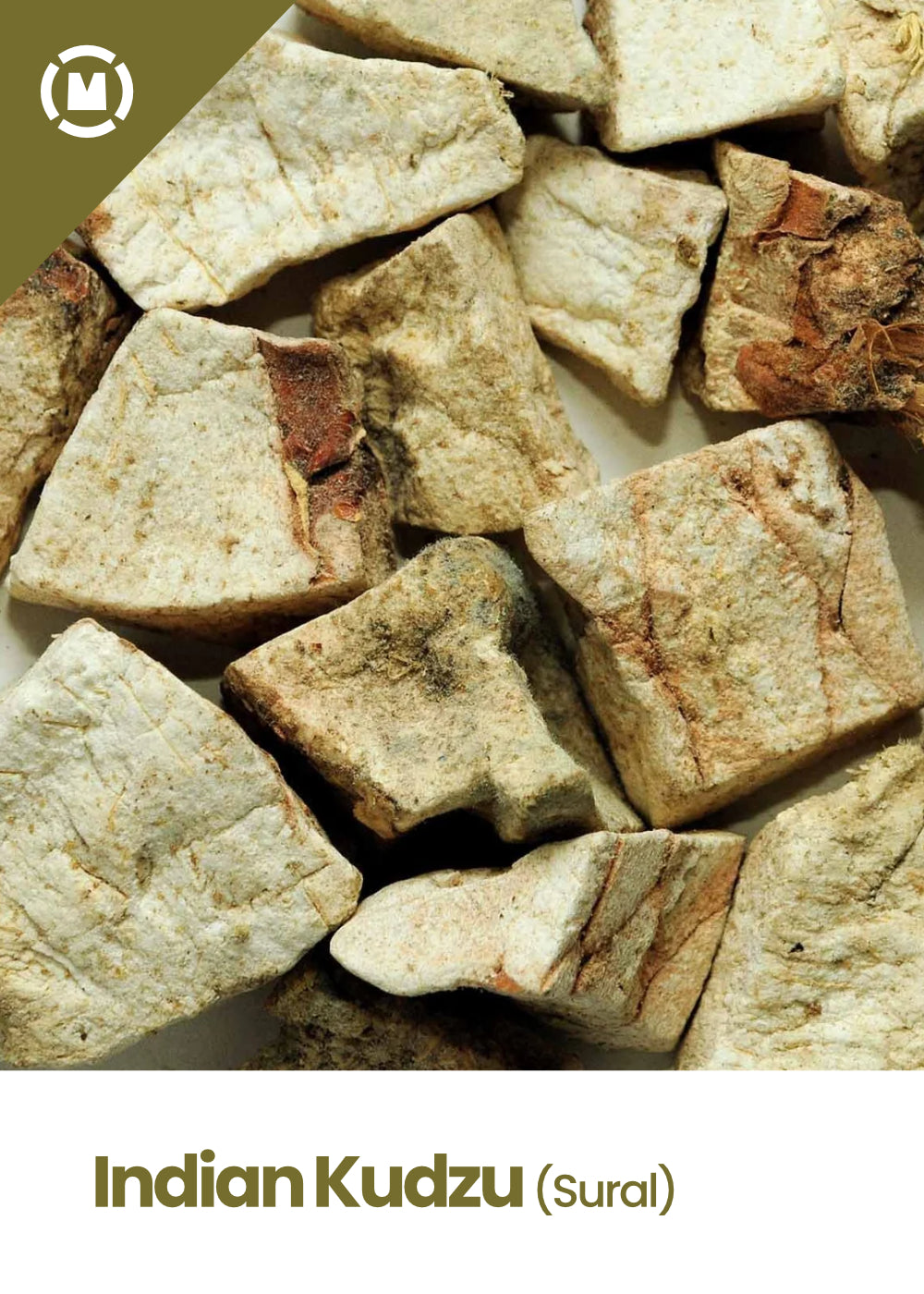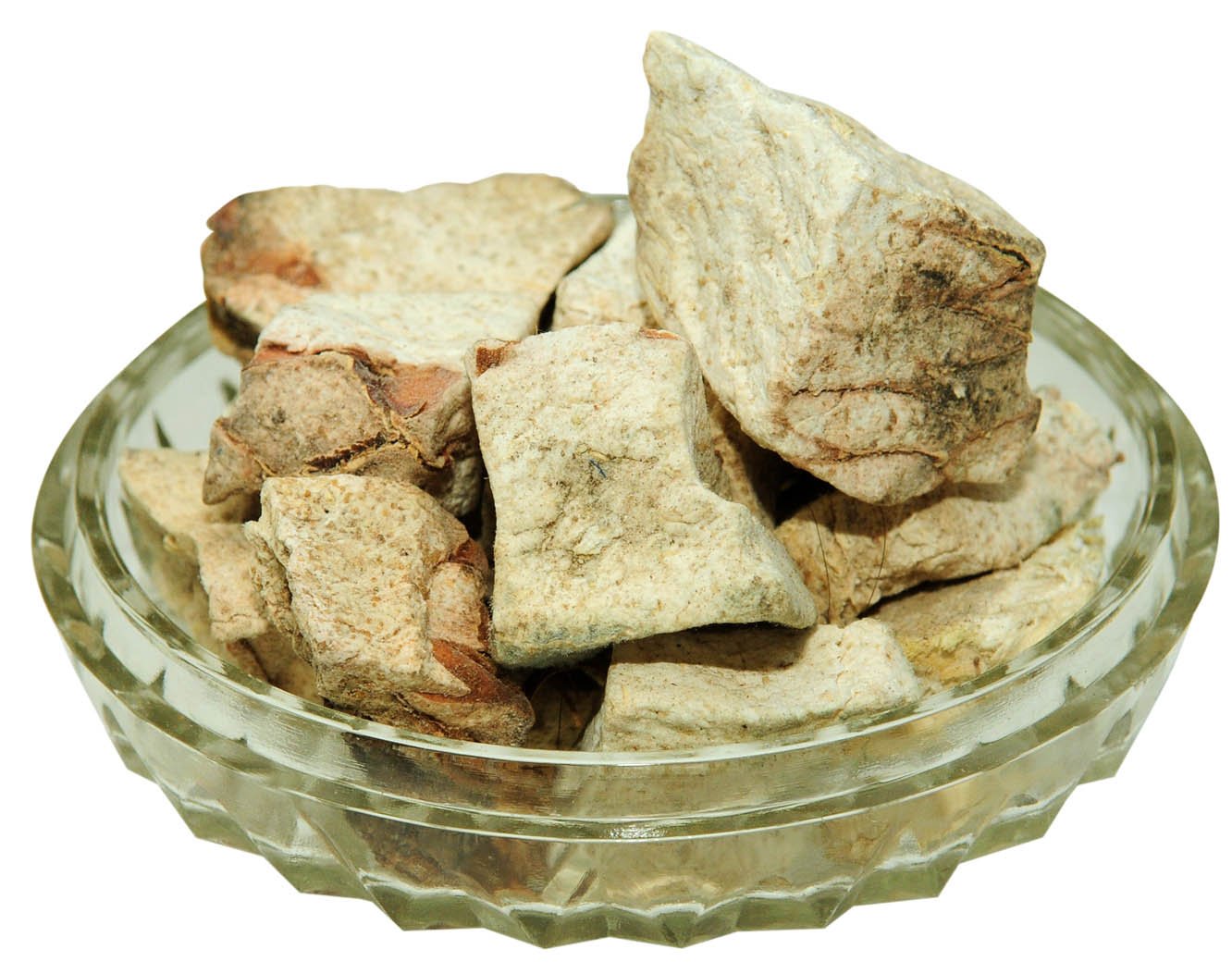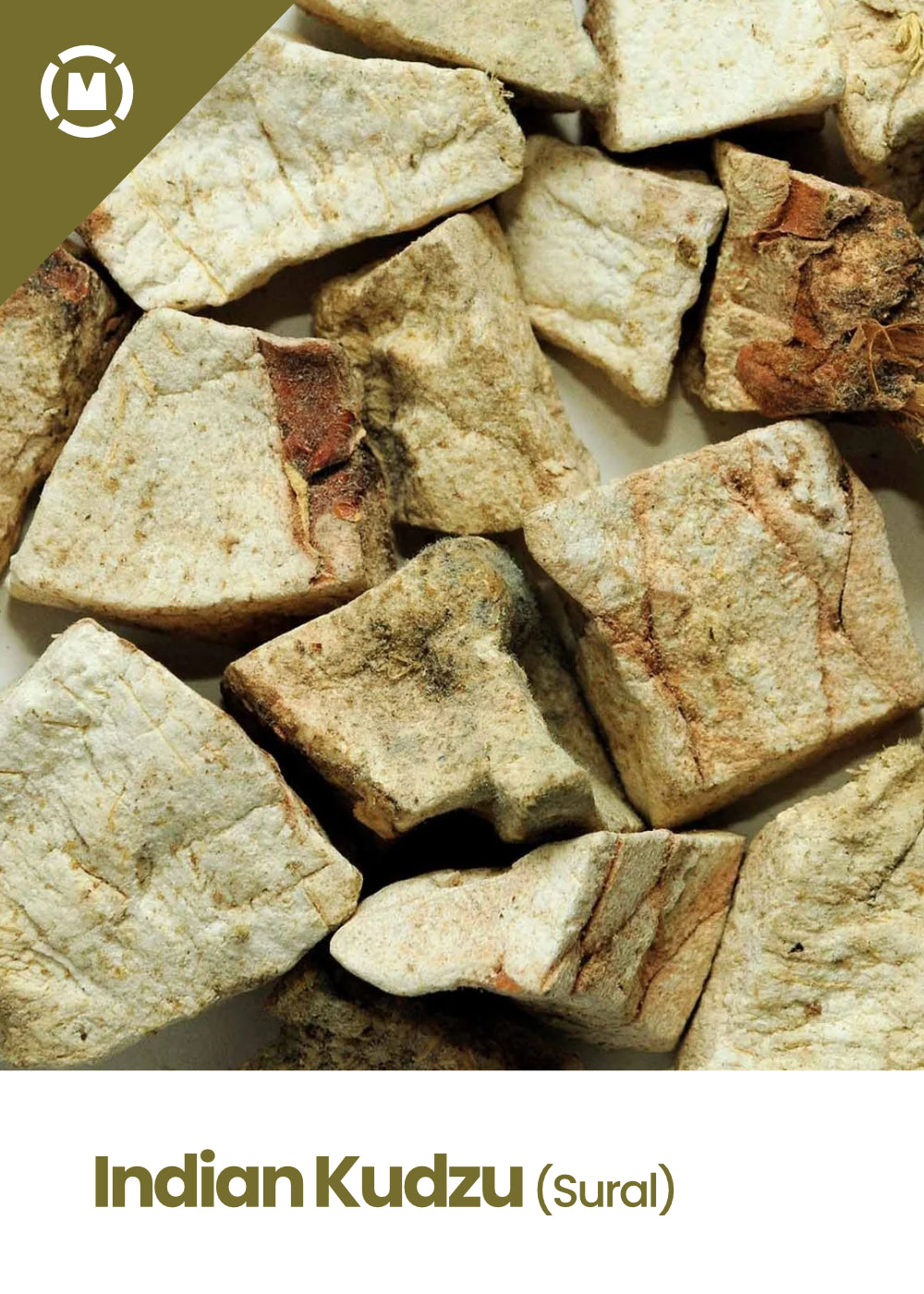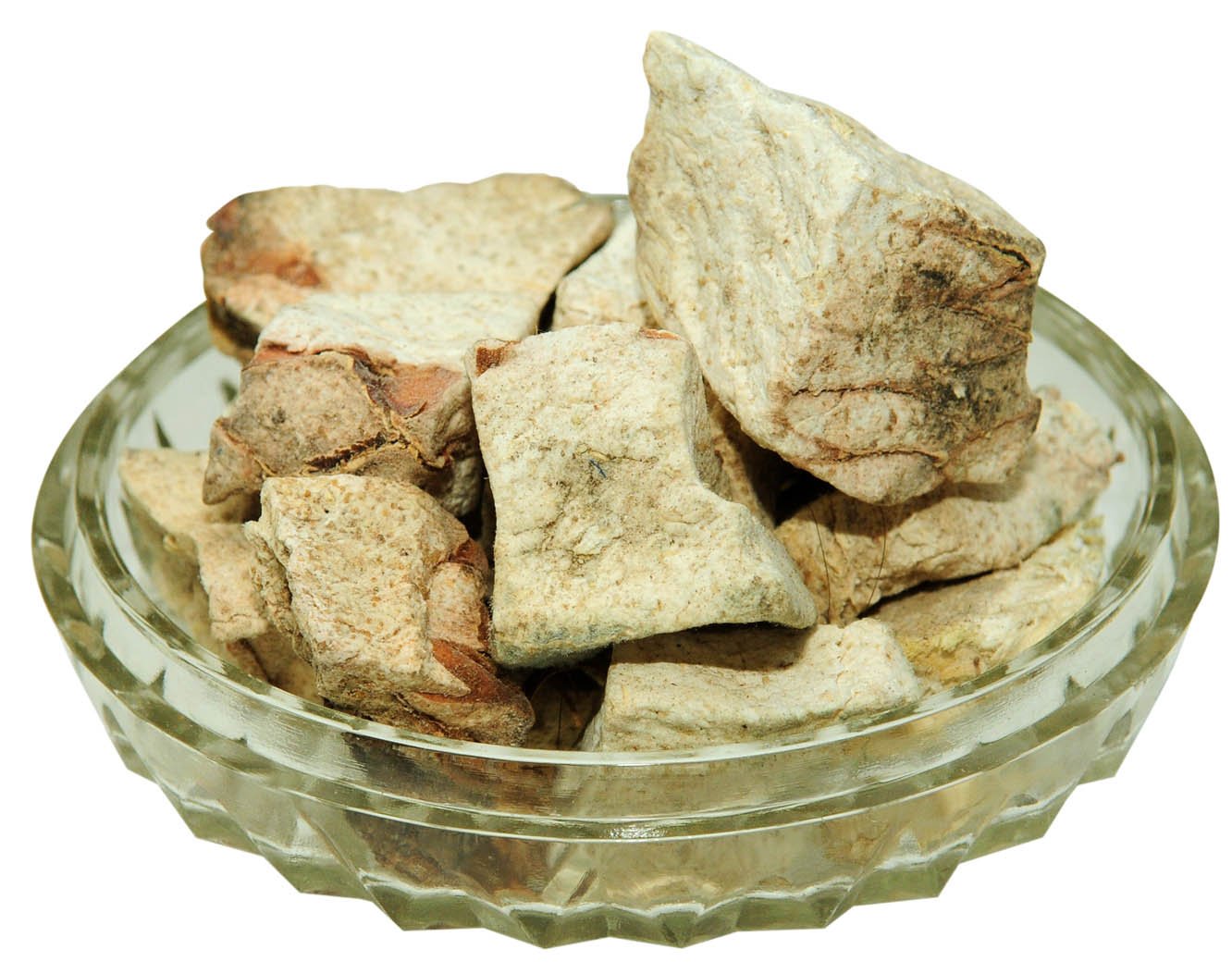M-Spice
Indian Kudzu
Indian Kudzu
Couldn't load pickup availability
Indian Kudzu (Pueraria tuberosa) is a deciduous vine with long, thick rhizomes, hairy stems, and trefoil leaves. The genus Pueraria is named after the noted Swiss botanist M N Pueraria (1766-1845). The genus groups roughly 20 species of herbaceous or woody vines.
The dried tuberous roots of Kudzu are used in herbal medicine- either fresh for juice or dried for use in decoction and powder. Once the roots are dug up and cleaned, they are cut into slices with the outer bark peeled off and then dried in the sun. Kudzu is used in the treatment of alcoholism, angina, migraine and high blood pressure.
The Chinese have for centuries used a decoction of Kudzu as a treatment for alcoholism. In a famously documented study conducted by the biochemist Wing Ming Keung at Harvard Medical School, Kudzu was found to reduce the urge to drink alcohol within one week, and in over 80% of cases, the urge to consume alcohol was completely gone within two to four weeks of treatment.
| Glossary | |
| Botanical name | Pueraria tuberosa |
| Common name | Indian Kudzu, Vidharikand |
| Hindi | Sural, Bilaikand, Bharda, Tirra, Bankumra |
| Kannada | Gumadigida, Nelagumbala |
| Konkani | Birmulo |
| Malayalam | Mutukku |
| Marathi | Ghorbel, Bendarvel |
| Tamil | Karikkummati, Nila Poosani |
| Telugu | Nela Gummadi, Dari Gummadi, Vidari Kanda |
| Urdu | Bidhari Qand |



